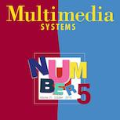This paper presents an experimental framework for implementing Decentralized Autonomous Database Systems (DADBS) using the Rust programming language. As traditional centralized databases face challenges in scalability, security, and autonomy, DADBS emerge as a promising solution, using blockchain principles to create distributed, self-governing database systems. Our framework explores the practical aspects of building a DADBS, focusing on Rust's unique features that improves system reliability and performance. We evaluated our DADBS implementation across several key performance metrics: throughput, latency(read), latency(write), scalability, CPU utilization, Memory Usage and Network I/O, The average results obtained over a 24-hour period of continuous operation were 3,000 transactions/second, 75 ms, 250 ms, 55%, 2.5 GB, 100MB/s. The security analysis depicts that even with an increase in the percentage of malicious nodes, DADBS still maintains high throughput and consistency. The paper discusses key design decisions, highlighting how Rust's ownership model and concurrency features address common challenges in distributed systems. We also examine the current limitations of our approach and potential areas for future research. By providing this comprehensive overview of a Rust-based DADBS implementation, we aim to contribute to the growing body of knowledge on decentralized database architectures and their practical realization.
翻译:暂无翻译





